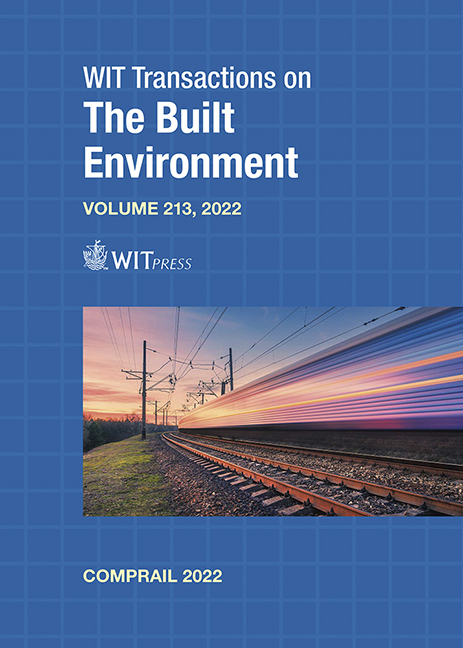SUSTAINABLE DEVELOPMENT OF FREIGHT TRANSPORT USING A FASTER AND MORE ECO-FRIENDLY MODE
Price
Free (open access)
Transaction
Volume
213
Pages
12
Page Range
199 - 210
Published
2022
Paper DOI
10.2495/CR220181
Copyright
Author(s)
HAMAD ALMUJIBAH
Abstract
Especially in developing countries such as Saudi Arabia, when considering an increase in rail lines it is vital to examine the freight sector’s sustainable development. The aim is to transfer freight from slow modes of transport (trucks) to the faster and more eco-friendly mode of rail. This paper predicts two economic impacts from the transfer: less wear on the pavement structure of the highways, and changes in terms of time, cost, infrastructure capacity, and so on, compared to shipment by heavy trucks. Using rail can prevent damage to roads and the costs relating to heavy trucks, as well as accidents and air pollution. Various parameters are considered, such as loading and the longitudinal tire forces of trucks, the materials used in the construction of roads (e.g. asphalt) and their thickness. In this case, a 950-km length of the Riyadh–Jeddah line is used as a case study, determining the cost and time taken both before and after introducing a freight rail system. This method can be applied to the military sector to move heavy haulage and to transport minerals all over Saudi Arabia. In this case, the just-in-time (JIT) or door to door (DTD) method of delivery services is adopted, as trucks still have to drive the first and/ or last few kilometers of each railway journey. It is based on a comparative model to calculate and compare total shipping costs and transport time for road and rail transport. As a result, the total cost of transporting military vehicles/freight by rail transport is about $11,423, resulting from $1,272, $8,695, and $1,456 of fuel, labor wages, and drivers’ wages, respectively, which is lower than by road transport of about $12,634, resulting from $606, $661, $8,695, and $2,672 for the fuel cost, road user charge/express tolls, labor wages, and drivers’ wage, respectively.
Keywords
sustainable, freight, rail, vehicle trucks, just-in-time, door-to-door, Riyadh, Jeddah





